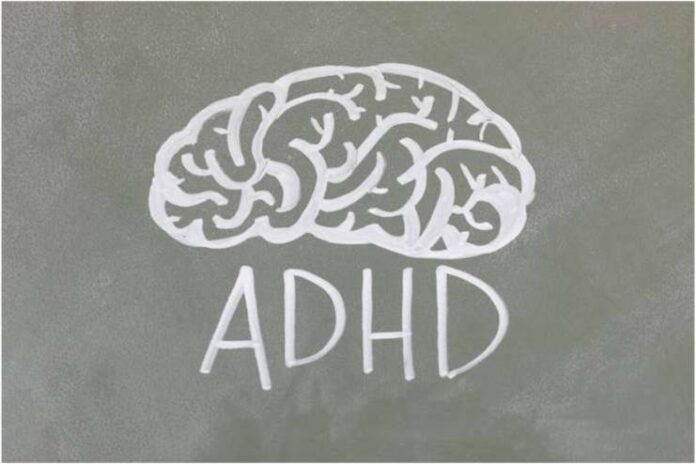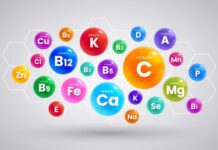Affiliate Disclaimer
Some links in this article are affiliate links. We may earn a small commission if you make a purchase through these links, at no extra cost to you. We only recommend products we find useful to our readersADHD is a neurodevelopmental condition that causes chronic inattention, impulsivity, and hyperactivity that impairs daily life. Poor focus, forgetfulness, and motor activity are common symptoms. As we recognize ADHD Awareness Month in October, we must explore various treatment options.
Doctors typically treat ADHD with stimulants or behavioral therapy. There is growing interest in alternative or supplementary ADHD treatments, including natural supplements. Many believe these supplements are safer than pharmaceuticals.
This article will discuss five natural supplements that may help ADHD patients focus and relax. Whether alone or in combination with established ADHD therapies, these vitamins may help. By learning the pros and cons of these supplements, ADHD patients and their caregivers can make informed treatment decisions.

1. Omega-3 Fatty Acids
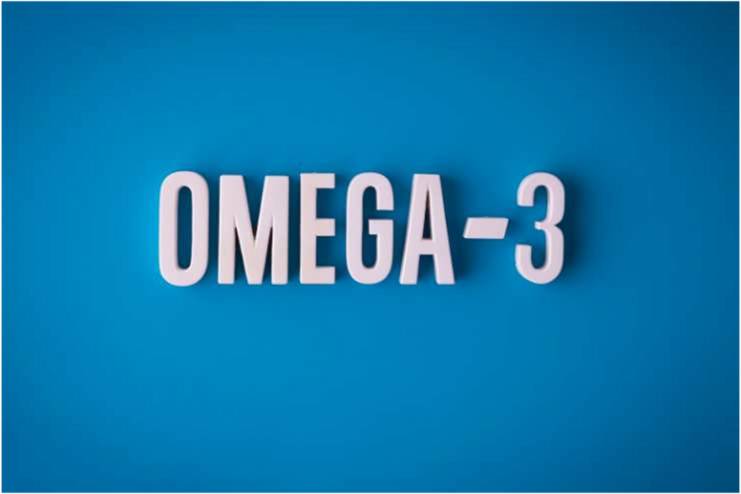
Omega-3 fatty acids, a form of polyunsaturated fat, are vital for maintaining brain health and function. The body cannot manufacture these fatty acids naturally, so they must be obtained through diet or supplements.
The two primary omega-3 fatty acids are docosahexaenoic acid (DHA) and eicosapentaenoic acid (EPA), found in large quantities in salmon, mackerel, and sardines, among other fish species.
How It Helps ADHD: Because omega-3 fatty acids improve brain function, they are thought to benefit those with ADHD. Studies indicate that DHA and EPA may lessen impulsivity and hyperactivity while enhancing cognitive function, focus, and attention. Neurotransmitter transmission and the structure and function of brain cell membranes are both influenced by omega-3 fatty acids and are significant processes that govern mood and behavior. People with ADHD may see improvements in their general cognitive function and symptoms by adding omega-3 supplements to their diet.
Top Recommendation:
Product Name: Nature’s Bounty Fish Oil 1200 mg Omega-3 Softgels.
Key Features: The soft gel Includes DHA and EPA, two naturally occurring omega-3 fatty acids that promote and preserve cardiovascular system health. Each serving also contains 360 mg of essential fatty acids that promote cardiac cells and metabolic health.
Pros: High content of omega-3 fatty acids, soft gels that are easy to swallow and have been processed for quality.
Cons: For some people, there might be a fishy aftertaste.
Price: $28.60 on Amazon.com for a bottle containing 360 softgels.
2. Zinc
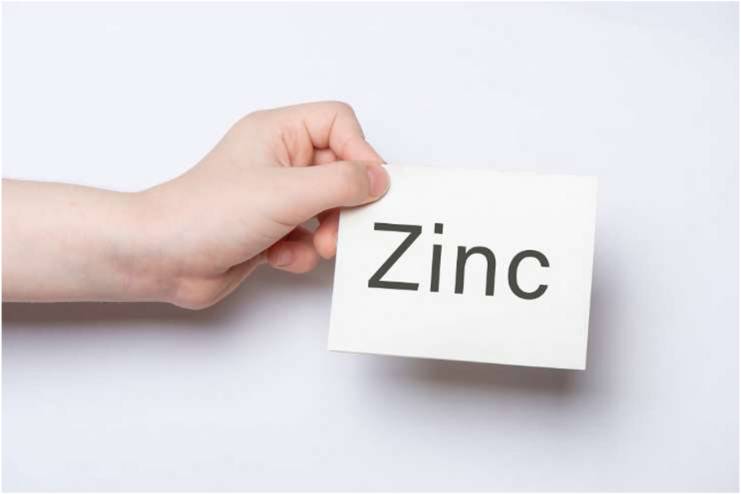
Zinc is essential for many body processes, such as wound healing, immune system performance, and sensory perception. It is also necessary for the brain’s neurotransmitter system to work correctly. More than 300 enzymes involved in different metabolic pathways, such as synthesizing and controlling neurotransmitters, require zinc as a cofactor.
How It Helps ADHD: Inattention, impulsivity, and hyperactivity are among the symptoms of ADHD that zinc deficiency has been related to. Research has indicated that blood zinc levels are often lower in people with ADHD than in people without the illness. Zinc is essential in controlling dopamine, a neurotransmitter involved in reward pathways, motivation, and attention in the brain.
Zinc supplements may help people with ADHD improve symptoms, including impulse control, attention span, and general cognitive function. To guarantee safety and identify the proper dosage, it is imperative to speak with a healthcare provider before beginning any supplementation regimen, especially for people who are already on medication or have any pre-existing medical conditions.
Top Recommendation:
Product Name: Nature’s Way Zinc 30 mg Capsules is the product name.
Key Features: Zinc gluconate, a highly absorbable type of zinc, is 30 mg each capsule. The capsules have no artificial flavors, added colors, or preservatives.
Pros: Vegetarian-friendly, high-potency capsules that are simple to ingest.
Cons: Eating on an empty stomach might induce gastrointestinal distress.
Price: $6.28 on Amazon.com for a bottle containing 100 capsules.
3. Iron
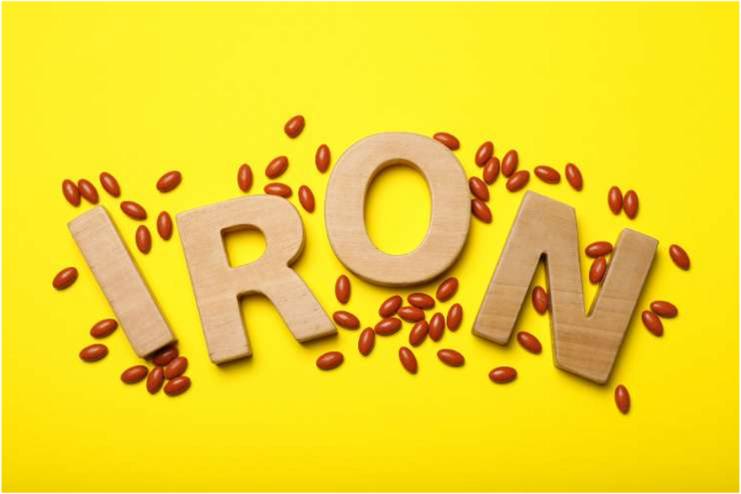
An essential mineral, iron is involved in many physiological functions, such as transporting oxygen, synthesizing energy, and cognitive function. It is a necessary part of hemoglobin, the red blood cell protein that carries oxygen from the lungs to the body’s other tissues. Iron also plays a vital role in the production of neurotransmitters and the control of brain activity.
How It Helps ADHD: Inattention, impulsivity, and cognitive deficits are among the symptoms of ADHD that iron deficiency has been linked to. According to research, iron is essential for the growth and operation of the central nervous system and for producing chemicals like serotonin and dopamine, which are linked to ADHD. Iron deficiency can also result in a reduction in the amount of oxygen that reaches the brain, which can cause tiredness, irritability, and difficulty concentrating—all of which are typical symptoms of ADHD.
By addressing inadequacies and restoring appropriate amounts of this necessary mineral, iron supplementation may help reduce these symptoms and improve focus, cognitive function, and energy levels. Before beginning any supplementation plan, it is imperative to speak with a healthcare provider, though, since taking too much iron can have negative consequences, especially in people who already have specific medical issues or genetic predispositions.
Top Recommendation:
Product Name: Solgar Gentle Iron 25 mg Vegetable Capsules.
Key Features: Each capsule contains 25 mg of iron bis-glycinate, an extremely absorbable and mild type of iron. The capsules are free of gluten, wheat, dairy, soy, yeast, sugar, salt, artificial flavors, sweeteners, preservatives, and colors.
Pros: Suitable for vegetarians and for people with delicate digestion, these capsules are gentle on the stomach and easy to ingest.
Cons: Sometimes, it may result in black stools or constipation.
Price: $9.51 on Amazon.com for a 90-capsule bottle.
4. Magnesium

Magnesium is a necessary mineral involved in more than 300 biochemical processes in the body, including energy production, blood pressure control, and the operation of muscles and nerves. Because it also relaxes the nervous system, it helps encourage relaxation and lower tension.
How It Helps ADHD: Because magnesium is essential for controlling neurotransmitters and brain activity, it may be helpful for those who have ADHD. One of its primary modes of action is its capacity to alter the activity of N-methyl-D-aspartate (NMDA) receptors, which release neurotransmitters, including glutamate and dopamine. Magnesium can assist people with ADHD in becoming less hyperactive and impulsive by restoring neurotransmitter balance.
Moreover, magnesium deficits have been linked to sleep disturbances, which are frequently noted in ADHD patients. Because of magnesium’s relaxing effects on the neurological system, you can relax and get better sleep, improving your day-to-day functioning. Supplementing with magnesium may help people with ADHD become less hyperactive, pay more attention, and sleep better at night, all of which will improve their quality of life. But before beginning a magnesium supplement, like with any supplement, it’s best to speak with a doctor, especially if you have renal issues or other underlying medical disorders.
Top Recommendation:
Product Name: Doctor’s Best High Absorption Magnesium Glycinate Lysinate.
Key Features: Magnesium glycinate/lysine chelate, a highly absorbable and accessible type of magnesium, is included in 200 mg tablets each. The pills are vegetarian-friendly, non-GMO, and devoid of gluten.
Pros: Rapid absorption, easy on the stomach, aids stress reduction and muscle relaxation. Vegetarian-friendly.
Cons: If taken in excess, it may result in loose stools.
Price: $18.19 on Amazon.com for 240 pills in a bottle.
5. Vitamin B6
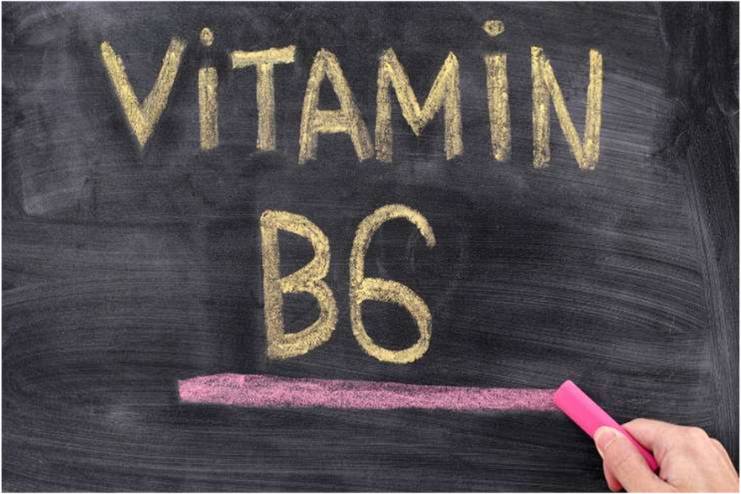
Vitamin B6 is a water-soluble vitamin integral to various biochemical events within the body. Some of these reactions include the metabolism of amino acids, the creation of neurotransmitters, and the generation of red blood cells. Also known as pyridoxine, Vitamin B6 is involved in the manufacture of neurotransmitters such as serotonin, dopamine, and gamma-aminobutyric acid (GABA), which are essential in regulating mood, cognition, and behavior. It is needed for the efficient functioning of the nervous system.
How It Helps ADHD: Vitamin B6 is needed to produce neurotransmitters involved in mood regulation, attention, and impulse control and, therefore, has the potential to be therapeutic for those who have ADHD. People with ADHD may benefit from vitamin B6 since it can stimulate the creation of serotonin and dopamine, which in turn can help improve their ability to concentrate, focus, and enhance their cognitive function.
In addition, a lack of vitamin B6 has been associated with irritability, mood fluctuations, and cognitive deficits, all of which are typical signs of attention-deficit/hyperactivity disorder (ADHD). Vitamin B6 supplementation can assist in replenishing reduced levels of this critical nutrient, which can result in improvements in mood stability as well as a reduction in irritation and emotional dysregulation.
Supplementing with vitamin B6 may help people with ADHD increase their ability to concentrate, decrease their level of irritation, and experience an overall improvement in their quality of life. However, before beginning any supplementation, it is essential to consult with a qualified medical practitioner. This is especially crucial for persons with medical disorders or who are taking medications that have the potential to interact with vitamin B6.
Top Recommendation:
Product Name: Nature’s Bounty Vitamin B6 100 mg Tablets.
Key Features: Each pill contains 100 milligrams of vitamin B6 (pyridoxine hydrochloride), a high-potency dose that helps maintain brain function and the synthesis of neurotransmitters. Those who follow a vegetarian diet can consume these tablets without any concerns.
Pros: Benefits include high potency, help for energy metabolism, and assistance in creating neurotransmitters. Suitable for vegetarians.
Cons: If used in large doses for an extended length of time, it has the potential to cause nerve damage.
Price: On Amazon.com, a bottle containing one hundred tablets costs $7.99.
This ADHD Awareness Month, start your journey to better focus and mood with natural supplements!
Read More: A recent study links an unhealthy diet during pregnancy to ADHD in children.
A Parent’s Guide to Childhood Mental Health: How to Spot and Support Issues.
Conclusion
In honor of ADHD Awareness Month, it’s crucial to explore all available options to support those living with ADHD. Brain function, neurotransmitter balance, and cognitive health depend on omega-3 fatty acids, zinc, iron, magnesium, and vitamin B6. ADHD patients may benefit from these supplements to improve focus, attention, impulse control, and mood regulation.
However, I must stress the significance of visiting a doctor before starting any new supplement regimen. Healthcare providers can tailor advice to individual health needs, drugs, and interactions. We recommend natural supplements for ADHD patients and their caretakers as part of a comprehensive treatment plan. Try one recommended supplement, such as omega-3s for cognitive support, magnesium for relaxation, or vitamin B6 for mood modulation to improve attention and quality of life.
In this Article















